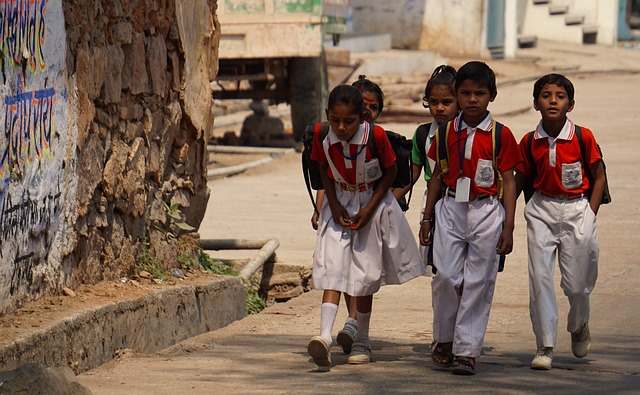The Plight of Indian Students: Deportation Of Indian Students

Introduction
In recent years, the deportation of Indian students from various countries, including the United States, Canada, and Australia, has garnered significant attention from both the media and the governments involved. This issue has raised concerns about the fairness and transparency of the student visa process and the potential impact on the lives and futures of the affected students. In this article, we will explore the challenges faced by Indian students pursuing higher education abroad, the reasons behind their deportation, and the efforts to address this problem.
The Importance of International Education for Indian Students

For many Indian students, the opportunity to study abroad represents a chance to access world-class education, expand their cultural horizons, and improve their career prospects. According to the latest Open Doors report, India is the second-largest source of international students in the United States, with over 190,000 students enrolled in American universities in the 2019-2020 academic year.
The Rise in Student Visa Deportations

Despite the significant number of Indian students pursuing higher education abroad, there has been a growing concern about the increasing instances of deportation. In recent years, hundreds of Indian students have been deported from countries like the United States, Canada, and Australia, often due to issues related to their student visas.
Reasons for Deportation
There are several reasons why Indian students may face deportation, including:
- Fraudulent or misleading information on visa applications
- Failure to meet the requirements of their student visas, such as maintaining a full course load or attending classes regularly
- Engaging in unauthorized work or overstaying the duration of their visas
- Involvement in criminal activities or other violations of the host country’s laws
The Impact on Students and Families

The deportation of Indian students can have severe consequences for both the students and their families. Many students invest significant time, money, and effort into securing admission to foreign universities and obtaining student visas. Deportation can disrupt their education, lead to financial losses, and damage their future prospects.
Efforts to Address the Problem

In response to the growing concern about student visa deportations, both the Indian government and the governments of the host countries have taken steps to address the issue.
The Role of the Indian Government
The Indian Ministry of External Affairs has expressed concerns about the deportation of Indian students and has sought to engage with the relevant authorities in the host countries to ensure fairness and transparency in the visa process. The government has also assisted deported students, including helping them to secure alternative educational opportunities or to return to India safely.
Related Terms: determine, companies, sign, unable, log, expected
Measures Taken by Host Countries
The governments of the United States, Canada, and Australia have also taken steps to address the issue of student visa deportations. These measures include:
- Increasing scrutiny of visa applications to detect fraudulent or misleading information
- Providing more explicit guidance to students about the requirements of their visas and the consequences of violating them
- Working with educational institutions to ensure that they are providing accurate information to prospective students and are complying with visa regulations
- Improving communication and coordination between immigration authorities and educational institutions to identify and address potential issues before they lead to deportation
Key Takeaways

- The deportation of Indian students from countries like the United States, Canada, and Australia has become a significant concern in recent years.
- Fraudulent visa applications, failure to meet visa requirements, unauthorized work, and criminal activities can be grounds for deportation.
- Deportation can have severe consequences for students and their families, including financial losses and disrupted education.
- Both the Indian government and the governments of the host countries have taken steps to address the problem, including increasing scrutiny of visa applications, providing clearer guidance to students, and improving coordination between immigration authorities and educational institutions.
Relevant Case Law
- In the case of “Yadav v. Canada (Citizenship and Immigration)”, a Federal Court of Canada judge ruled that the decision to deport an Indian student was unreasonable, as the student had not been given sufficient opportunity to respond to the allegations against him.
- In “Kaur v. United States Citizenship and Immigration Services”, a U.S. District Court judge found that denying an Indian student’s visa application was arbitrary and capricious, as the student had provided sufficient evidence of her eligibility for the visa.
Conclusion
The deportation of Indian students from countries like the United States, Canada, and Australia is a complex and sensitive issue that requires a multi-faceted approach. While the governments involved have taken steps to address the problem, more needs to be done to ensure that the student visa process is fair, transparent, and responsive to the needs of international students.
By working together and maintaining open lines of communication, all stakeholders can help to create a more welcoming and supportive environment for Indian students pursuing higher education abroad.
Related Terms: Valid student visas, homeland security, Indian students were deported, valid visas, south Dakota, postgraduate studies, school, colleges, country, programs, week, past, department, obtain legal advice













